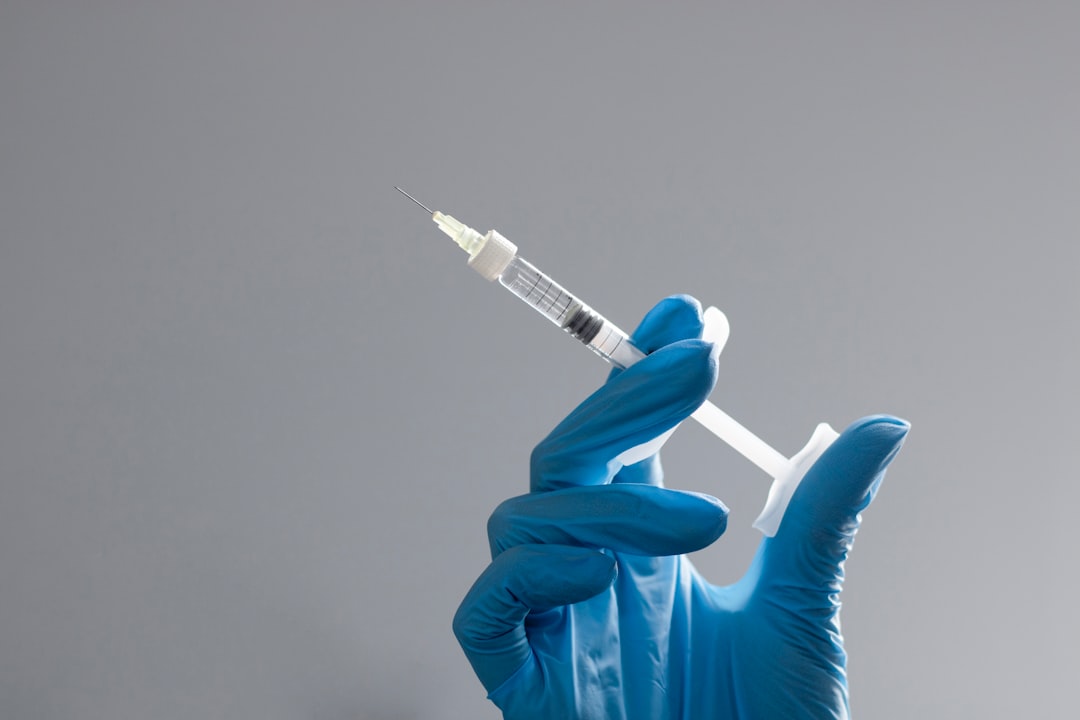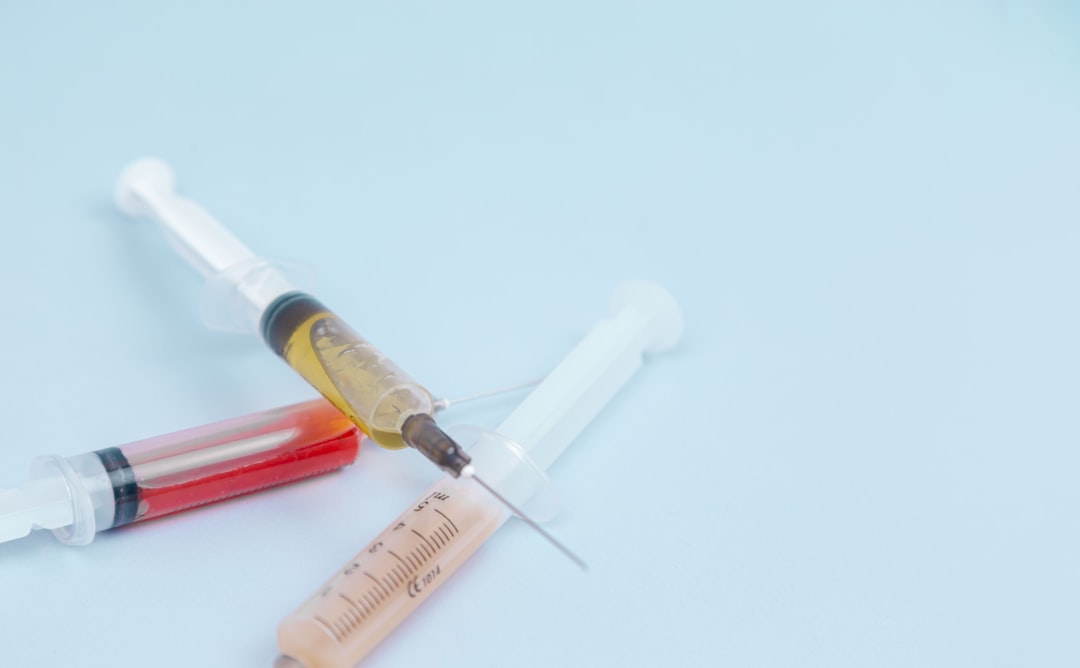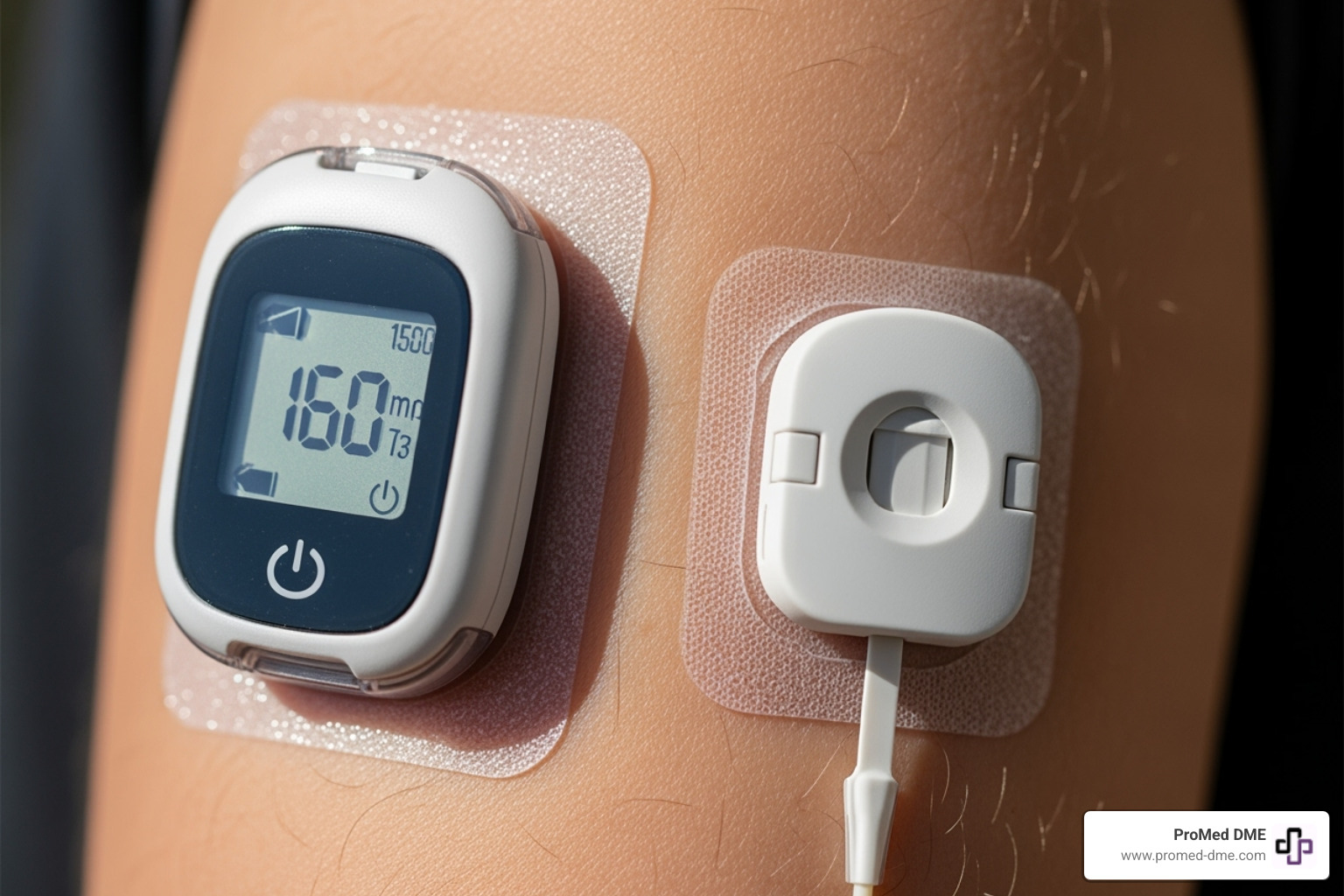Understanding Hypoglycemia: Causes and Prevention Tips

Are you experiencing a sudden onset of cold sweats, dizziness, or unexplained fatigue? These might be signals that your blood sugar levels have plummeted, an alarming condition known as hypoglycemia. Unbeknownst to many, hypoglycemia can negatively impact every aspect of your daily life leading to physical discomfort and emotional distress.
At ProMed DME, we believe in empowering our clients with the knowledge to manage their health concerns better. One area where awareness can make a significant difference is understanding hypoglycemia causes and how this condition can be best managed. Hypoglycemia, or low blood sugar, isn’t simply a concern for people with diabetes; it can affect anyone and springs from several causes.
Hypoglycemia principally occurs when the glucose (sugar) level in the blood drops too low. Glucose is the primary fuel source for your body and brain. Therefore, a deficiency in this critical energy source could hamper your normal physiological functions. Fundamentally, any condition that depletes the body's glucose supply, makes the body's glucose response sluggish, or increases glucose removal from the body can cause hypoglycemia.
In the context of diabetes –
- Taking too much insulin or diabetes medication
- Consuming less food than usual after taking diabetes medication
- Increasing physical activity without adjusting medication or food intake
Hypoglycemia without diabetes can be caused due to:
- Certain medications like quinine
- Excessive alcohol drinking
- Some critical illnesses
- Long-term starvation
- Insulin overproduction due to tumors
- Hormone deficiencies
Understanding hypoglycemia causes is the first step towards effective management of this condition. Let’s delve deeper into these causes and learn about the vital preventive measures that can alleviate the distress associated with hypoglycemia.
Understanding Blood Glucose and Its Role in the Body
Blood glucose, also known as blood sugar, is a vital energy source for the body. Derived from the food we eat, it is primarily regulated by insulin—a hormone produced by the pancreas. As we eat, our body breaks down foods into glucose, which enters the cells to provide the fuel they need. Any extra glucose is stored in the liver and muscles as glycogen for future use.
When you haven't eaten for several hours and your blood sugar level drops, your body stops producing insulin. Instead, a hormone from your pancreas called glucagon signals your liver to break down the stored glycogen and release glucose into your bloodstream. This process helps maintain your blood sugar within a standard range until you eat again.
In some cases, your body can also produce glucose. This mainly occurs in your liver, but also in your kidneys. During prolonged fasting, the body can break down fat stores and use the products of fat breakdown as an alternative fuel. This complex process of managing glucose levels in the body is what keeps us energized and healthy.
However, certain conditions can disrupt this balance, causing the blood sugar to drop too low—a condition known as hypoglycemia. Although hypoglycemia is often related to diabetes treatment, other drugs and a variety of conditions can cause low blood sugar in people who don't have diabetes. This is why understanding the causes of hypoglycemia is crucial in effectively managing this condition.
At ProMed DME, we believe that knowledge empowers. Knowing how your body regulates blood glucose and the factors that might disrupt this balance is a critical step in proactive health management. With this understanding, you'll be better equipped to recognize hypoglycemia symptoms and seek prompt treatment. In the following sections, we'll explore the symptoms of hypoglycemia in detail, along with its potential causes and prevention tips.
Recognizing the Symptoms of Hypoglycemia
Hypoglycemia, or low blood sugar, triggers a series of symptoms that serve as warning signs. These symptoms can range from mild physical discomfort to severe health emergencies if left untreated. By recognizing these symptoms, you can take immediate action to prevent your blood sugar from dropping further. Let's delve into the various physical, emotional, and cognitive symptoms associated with hypoglycemia.
Physical Symptoms
Physical symptoms of hypoglycemia can be quite apparent and typically manifest when blood glucose levels fall below 70 mg/dL. Some of these symptoms include:
- Hunger and nausea
- Sweating or chills
- Dizziness or light-headedness
- Blurred vision
- Fatigue or weakness
- Headaches
These symptoms can vary from person to person and may occur even at higher glucose levels for individuals who have chronic hyperglycemia.
Emotional and Cognitive Symptoms
Apart from physical discomfort, hypoglycemia can impact your emotional well-being and cognitive abilities. These symptoms can often be overlooked but are crucial to recognize. They include:
- Irritability or mood swings
- Anxiety or nervousness
- Confusion or difficulty concentrating
- Difficulty speaking or slurred speech
In addition, people who experience frequent episodes of low blood sugar may develop hypoglycemia unawareness, a condition where the body stops showing symptoms when blood sugar drops.
Severe Hypoglycemia Symptoms
Severe hypoglycemia is a medical emergency and requires immediate treatment. If not addressed promptly, it can lead to unconsciousness, seizures, coma, or even death. Some of the severe symptoms include:
- Difficulty waking up or inability to wake up
- Seizures
- Unconsciousness
If you or someone around you exhibits these symptoms, it's crucial to seek immediate medical help. At ProMed DME, we understand the importance of swift and effective response to such scenarios. We recommend keeping a fast-acting carbohydrate like juice or glucose tablets at hand to counteract sudden drops in blood sugar.
In the next section, we will delve into the various hypoglycemia causes and how to prevent this condition. Understanding these aspects is key to managing your blood sugar effectively and living a healthy life.
Causes of Hypoglycemia
Hypoglycemia, or low blood sugar, is a prevalent issue for individuals with diabetes. However, what triggers this condition may not always be apparent. Here, we will explore the common hypoglycemia causes, which include medication, diet, physical activity, alcohol consumption, and other medical conditions.
Medication-Induced Hypoglycemia
One of the primary hypoglycemia causes is the overuse of insulin or diabetes medication. Insulin is a hormone that regulates blood sugar levels. If you have diabetes and require insulin to control your blood sugar, taking more than necessary can cause your blood sugar level to dip too low, resulting in hypoglycemia. The same applies to certain diabetes drugs like sulfonylureas, such as glipizide, glimepiride, or glyburide.
At ProMed DME, we realize that managing medication can be a complex task. That's why we encourage consistent communication with your healthcare provider to ensure the correct dosage and timing of your medication.
Dietary Factors Leading to Hypoglycemia
Not eating enough or skipping meals can also lead to hypoglycemia. After taking your diabetes medication, if you consume less food than usual, your blood sugar can drop too low. Therefore, maintaining a balanced diet is integral to prevent hypoglycemia.
Physical Activity and Hypoglycemia
Increased physical activity without adjusting your food intake or medication can also cause hypoglycemia. Exercise uses extra glucose, which can lead to a drop in your blood sugar levels. It's vital to monitor your blood sugar before and after exercise to prevent hypoglycemia.
Alcohol Consumption and Hypoglycemia
Drinking alcohol, especially on an empty stomach, can cause blood sugar levels to drop, resulting in hypoglycemia. Alcohol can also cause delayed hypoglycemia hours later, making blood sugar monitoring even more crucial.
Other Medical Conditions and Hypoglycemia
Certain medical conditions and factors can increase the risk of hypoglycemia. These include long-term diabetes, impaired liver or kidney function, and the use of multiple medications.
In understanding hypoglycemia causes, it's crucial to remember that prevention is key. Regular blood sugar monitoring using reliable devices like the Dexcom G6 and G7 can provide real-time updates on your blood glucose levels, helping you prevent hypo and hyperglycemia.
Next, we'll discuss how to prevent and manage hypoglycemia effectively.

Hypoglycemia in People Without Diabetes
While hypoglycemia is more commonly associated with diabetes, it can occur in individuals without this condition. Two types of non-diabetic hypoglycemia are reactive hypoglycemia and fasting hypoglycemia. Let's dive into each of these types and understand their causes and symptoms.
Reactive Hypoglycemia
Reactive hypoglycemia, also known as postprandial hypoglycemia, typically occurs within four hours after meals. It is often a result of excessive insulin production. Although the body usually corrects this type of hypoglycemia on its own, consuming carbohydrates can help alleviate symptoms more quickly.
To diagnose reactive hypoglycemia, your healthcare provider may recommend a mixed-meal tolerance test (MMTT). This test involves drinking a special beverage filled with protein, fats, and sugar, which raises your blood glucose levels and triggers insulin production. Your provider will then monitor your blood glucose levels over the next five hours to determine if you have reactive hypoglycemia.
Fasting Hypoglycemia
Fasting hypoglycemia typically occurs after prolonged periods without food. The body usually manages blood sugar levels through hormones and stored glucose. However, certain conditions and situations can lead to fasting hypoglycemia in individuals without diabetes.
In rare cases, certain medications, such as beta-blockers and antibiotics, can cause hypoglycemia.
If you're experiencing hypoglycemia symptoms and don't have diabetes, speak with your healthcare provider. The only definitive way to confirm hypoglycemia is by checking your blood sugar levels with a reliable device like a blood glucose meter or a continuous glucose monitor (CGM) like the ones we offer at ProMed DME.
If you're experiencing symptoms and can't check your blood sugar, treat the hypoglycemia first. Always prioritize your health and safety.
Understanding the different hypoglycemia causes is the first step towards prevention and effective management. In the next section, we'll discuss how you can prevent and manage hypoglycemia effectively.

Prevention and Management of Hypoglycemia
Preventing and managing hypoglycemia involves a combination of lifestyle changes, regular monitoring, and appropriate response to low blood sugar symptoms. By understanding hypoglycemia causes, you can take proactive steps to reduce the risk and manage the condition effectively.
The Role of Diet in Preventing Hypoglycemia
Eating a balanced diet is crucial in preventing hypoglycemia. This includes not skipping or delaying meals, consuming consistent amounts of carbohydrates, and adjusting food intake during increased physical activity. If you take insulin or oral diabetes medication, be consistent about the amount you eat and the timing of your meals and snacks. A sudden change in your diet can cause your blood sugar level to drop too low, leading to hypoglycemia.
Importance of Regular Blood Glucose Monitoring
Regular blood glucose monitoring is another key prevention strategy. Depending on your treatment plan, you may need to check and record your blood sugar level several times a day. This careful monitoring is the only way to make sure that your blood sugar level remains within your target range. Devices like Continuous Glucose Monitors (CGM) can provide real-time updates on your blood glucose levels, helping you prevent hypo and hyperglycemia.
At ProMed DME, we offer top-of-the-line CGM systems like the Dexcom G6 and Dexcom G7, which are known for their exceptional accuracy. You can find more information about these devices in our CGM resource page.
The "15-15 Rule" for Treating Low Blood Sugar
If your blood sugar falls too low, follow the "15-15 rule". This involves eating 15 grams of a quick-acting carbohydrate, such as glucose tablets or juice, then waiting 15 minutes before rechecking your blood sugar. If it's still too low, repeat the process until your blood sugar reaches a safe level.
The Role of Glucagon in Severe Hypoglycemia
For severe hypoglycemia, glucagon is a lifesaver. This hormone stimulates your liver to release stored glucose into your bloodstream when your blood glucose levels are too low. Your healthcare providers, family members, and coworkers should be instructed on how to give you glucagon to treat severe hypoglycemia.
The Importance of Medical IDs for People with Diabetes
Many people with diabetes, particularly those who use insulin, should have a medical ID with them at all times. This can help in an emergency situation where others need to know that you have diabetes.
At ProMed DME, we believe that understanding hypoglycemia causes and taking appropriate steps for prevention and management can significantly enhance your quality of life. The key is to stay proactive and mindful of your health. If you need support in managing your diabetes, don't hesitate to contact us.
Conclusion: Living Well with Hypoglycemia
Understanding the hypoglycemia causes and being informed about its prevention and management strategies can make a significant difference in your life, especially if you live with diabetes. Hypoglycemia doesn't have to be a limiting condition. With careful planning, regular monitoring, and the right management tools, you can lead an active, fulfilling life.
At ProMed DME, we recognize the challenges that come with managing blood sugar levels. That's why we offer innovative solutions like Continuous Glucose Monitoring (CGM) devices. These devices provide real-time blood glucose monitoring, alerting you when your levels are trending high or low. This enables you to make informed decisions about food, exercise, and medication, thus preventing hypo and hyperglycemia.
Moreover, investing in a CGM device can significantly improve your diabetes outcomes. Several studies have indicated that CGM users experience fewer episodes of severe hypo and hyperglycemia, leading to fewer hospitalizations and emergency room visits.
Besides CGM devices, we also encourage regular check-ups with your healthcare provider to monitor your condition and make necessary adjustments in your treatment. Your healthcare provider is your partner in managing your condition effectively.
Living with hypoglycemia can be challenging, but with the right knowledge, tools, and support, you can manage your condition and lead a healthy life. At ProMed DME, we're committed to supporting you every step of the way.
For more information about managing hypoglycemia and other health conditions, visit our resources page. If you have any questions or concerns, please don't hesitate to reach out to us.

Stay informed, stay proactive, and most importantly, stay healthy.
Related Resources & Articles
Stay informed with our informative blog posts.
Discover the ProMed Advantage
& Try Our Products
We offer free shipping and legendary customer service to ensure you receive the
best DME products for your needs.



